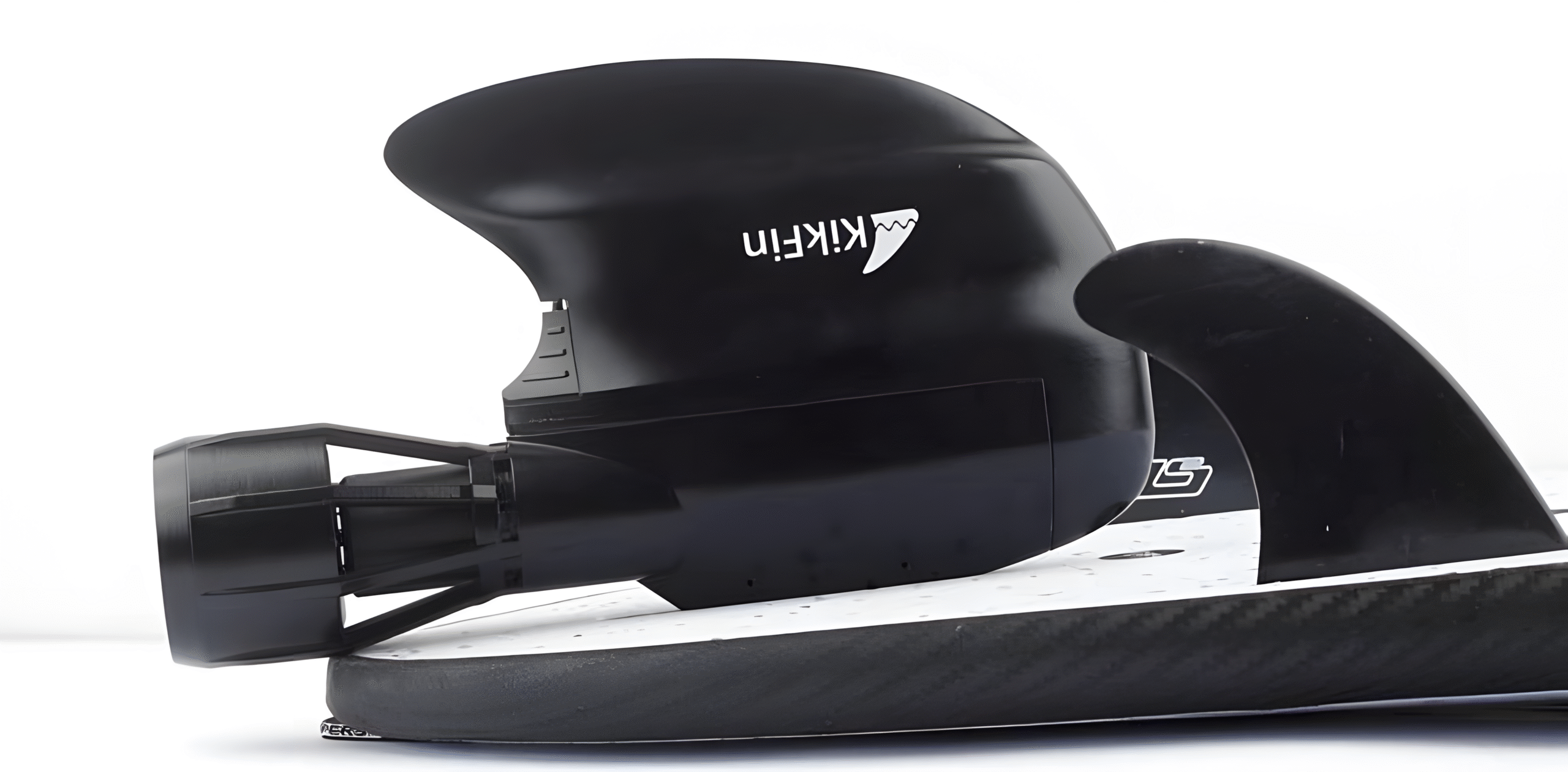Israeli Startup Creates Booster Pack For Underwater Use
The world’s first completely hands-free underwater “smart scooter” is being introduced by a startup in Israel.
KikFin has developed a jetpack with fins that attaches to the back of a swimmer and propels them through the water at speeds akin to, but significantly faster than, those of an Olympic swimmer. It is also capable of attaching to surfboards, which is advantageous for beginners learning to catch waves.
The KikFin is worn as a vest, which allows the diver to free their hands. Since the introduction of torpedoes by sailors during World War II, swimmers have consistently appreciated the benefits of an underwater boost. Since then, technology has advanced, and there is now a vast selection of sea scooters (also referred to as diver propulsion vehicles) available for purchase.
They offer an additional boost to both professional scuba divers and amateur snorkelers.
However, the main drawback has always been the need for swimmers to hold onto the handles while propelling through the water. That is, until now.
Amihay Mines, the CEO of KikFin, claims that his jetpack not only liberates the user’s hands but also emulates the movements of dolphins and other mammals. The diver can alternate between five speeds by utilizing a remote-control glove (Courtesy). The hydrodynamic wings enable the swimmer to alter their direction with the slightest movement of their head.
“It is as if you are floating underwater,” Mines explains. “The water freely flows over your body.”
Swimmers also remotely control the five-speed motor using a glove that reacts to a finger push. The military exclusively employs a specific wireless technology that KikFin utilizes. This technology facilitates communication in both air and water environments.
It also includes a safety feature that can restrict the swimmer’s depth or distance from their starting point, as well as an application that monitors their performance, location, and speed.
In early 2019, it will be commercially released, initially targeting recreational users.
The KikFin can also be attached to a surfboard (Courtesy). However, Mines asserts that it will provide significant benefits to professional divers in any field, including oil and gas rigs, rescue services, fish farms, the military, and beyond, who require the use of their hands.
The KikFin was tested by Kateryna Sadurska, the Ukrainian freediving world champion. “It induces an extraordinary sensation,” she stated. “Your fins are unnecessary; your arms are free.” It is considerably simpler to prioritize safety and relish the experience of submerging oneself in water, thereby experiencing oneself as a water angel.
Mines, who grew up in the vicinity of Palmahim beach in central Israel, was an avid surfer. He pursued mechanical engineering at university, during which time he initiated the development of an initial prototype of the KikFin. At that time, it was intended to be mounted on a surfboard, providing surfers with disabilities access to a new world through a group known as Wave-Ability.
“My aspiration was to witness individuals with disabilities gain control and relish the thrill and excitement of catching a wave,” he declares. “I collaborated with a hydrodynamics professor at my university to develop that fin, which functions as a thruster that can be attached to a surfboard.”
The next phase involved modifying the fins to suit better swimmers, which increased their agility and speed.
Divers rotate their heads to alter their course. KikFin is offered in various versions. Swimmers and surfers wear it as a vest, while stand-up paddleboarders (SUP) and surfers wear it on their boards.
It is especially beneficial for novices, who frequently abandon their attempts to catch a wave due to their inability to acquire sufficient speed.
KikFin is capable of propelling users underwater at a speed of 9 km/h and on the surface at a speed of up to 12 km/h. An average swimmer can achieve a speed of 3 kilometers per hour. Michael Phelps, who has won 28 Olympic swimming medals, broke the world record for the 100-meter butterfly by achieving 8.8 kilometers per hour.
The rechargeable battery is capable of being replaced underwater, and the device operates at a depth of 40 meters, providing an hour of power at full speed. It has been subjected to over 5,000 hours of underwater swimming at Eilat, a resort on the Red Sea in Israel, with 50 testers ranging in age from 12 to 80 years old.
Cudajet, an additional device that is currently available, is also a hands-free jetpack. According to Mines, the underwater wireless control and the wings that render his device so maneuverable are absent.











